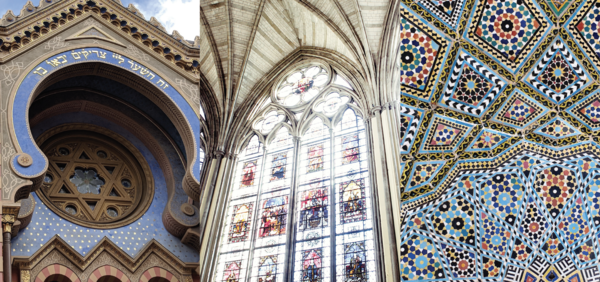Date:
Location:
The Center for the Study of World Religions, John Paul II Center for Interreligious Dialogue, Alwaleed Islamic Studies Program and the Center for Middle Eastern Studies present a lecture by
Guy Stroumsa
The Hebrew University of Jerusalem; Oxford University
Response by Jon Levenson, Harvard Divinity School;
Opening Remarks by Charles Stang, Harvard Divinity School, and Adam Afterman, Tel-Aviv University
How is the comparative scholarship on Judaism, Christianity, and Islam possible? What are its presuppositions, and what does it entail? How can the history of religions help interfaith understanding? These are some of the questions this lecture will address.
Guy Stroumsa’s research focuses on the dynamics of encounters between religious traditions and institutions in the Roman Empire and in Late Antiquity, in the Mediterranean and the Middle East. He has studied the crystallization of the Abrahamic traditions in late antiquity, as a background to Islam. He sees Gnosis, Manichaeism and Early Christianity as a unique laboratory for understanding religious transformations in late antiquity. In his studies, Stroumsa seeks in his work to cross traditional interdisciplinary boundaries in order to study religious phenomena from a comparative perspective. This approach permits him to understand the mechanisms behind the religious revolution of Late Antiquity, a period which saw the cessation of a number of widespread aspects of ancient religion (such as blood sacrifice) and the development of new systems, which stand at the basis of Judaism, Christianity and Islam. Stroumsa also works on the history of scholarship on religion, from early modern times to the twentieth century. Stroumsa is the author of fourteen books, and the editor or co-editor of some twenty books. He has published more than a hundred and thirty articles.
John Levenson, Albert A. List Professor of Jewish Studies, began teaching at Harvard in 1988. His work concentrates on the interpretation of the Hebrew Bible, including its reinterpretations in the "rewritten Bible" of Second Temple Judaism and rabbinic midrash. Professor Levenson has a strong interest in the philosophical and theological issues involved in biblical studies, especially the relationship of premodern modes of interpretation to modern historical criticism. Much of his work centers on the relationship of Judaism and Christianity, both in antiquity and in modernity, and he has long been active in Jewish-Christian dialogue. His book Resurrection and the Restoration of Israel: The Ultimate Victory of the God of Life (Yale University Press, 2006) won a National Jewish Book Award and the Biblical Archaeology Society Publication Award in the category of Best Book Relating to the Hebrew Bible published in 2005 or 2006. Choice, a publication of the American Library Association, listed Inheriting Abraham: The Legacy of the Patriarch in Judaism, Christianity, and Islam (Princeton University Press, 2012) as one of the Outstanding Academic Titles for 2013. His new book is The Love of God: Divine Gift, Human Gratitude, and Mutual Faithfulness in Judaism (Princeton University Press, 2015).
Co-sponsors: Center for the Study of World Religions, John Paul II Center for Interreligious Dialogue, Alwaleed Islamic Studies Program, Center for Middle Eastern Studies
Contact: Center for World Religions; 617.495.4476
